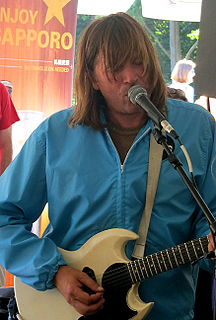A Quote by Hooman Majd
I got a couple of stories published, but the kind of money you were making for publishing a short story, I could see I wasn't going to make a living at it.
Related Quotes
No one writes a story like Lydia Davis. In the years since she began publishing her lyrical, extremely short fiction, she has quietly become one of the most impactful influences on American writers, even if they don't know it. That's largely because she makes economy seem so easy. You could read several of her stories into a friend's voicemail box before you were cut off (and you should). You could fit one of her stories in this column. Some you could write on your palm.
We lived in a very modest house. My father drove modest cars, we didn't travel, we didn't do any of the things that, were commensurate with the kind of income that he was making. So we got this kind of, double message, which was, y'know, "You work hard and you make as much money as you possibly can, but you don't spend any money." And you see how well I learned that lesson.
I've always loved short stories. Even before I was a writer I was reading short stories - there were certain writers where I just felt like they could do in a short story what so many writers needed a whole novel to do, and that was really inspiring to me. Alice Munro, I felt that way about from an early time. Grace Paley.
I found myself sitting at the computer, and I thought I was going to write a kind of simple nostalgic story about two boys and their love of kite fighting. But stories have a will of their own, and this one turned out to be this dark tale about betrayal, loss, regret. The short story which was about 25 pages long sat around for a couple of years.
In the short stories - if I can make a very lumpy contrast - in the short stories I feel like the lives of the people have a kind of prior desperation and a prior need and my longing is for the story and their lives to somehow come together, even if not finally or forever, to face something; and it felt like a lot of the time with the essays I was wading into situations where there was an assumption of finality of understanding, and I felt like I could wade into any understood moment and tear it apart and make it fall apart.
When I was about twenty-one, I published a few poems. Maybe I wrote a couple of stories before, but I really began to write stories in my mid-thirties. My kids were still little, and they were in school and day care, and I had begun to think a lot about wanting to tell some stories and not being able to do it in poetry.
Don't wait for success, but for the respect and interest of those who read you. At the start it could be a classmate, someone who shares your interests. Before sending off the manuscript for a novel to a publishing house, it would be a good idea to try writing short stories, and publishing them in a local magazine.































